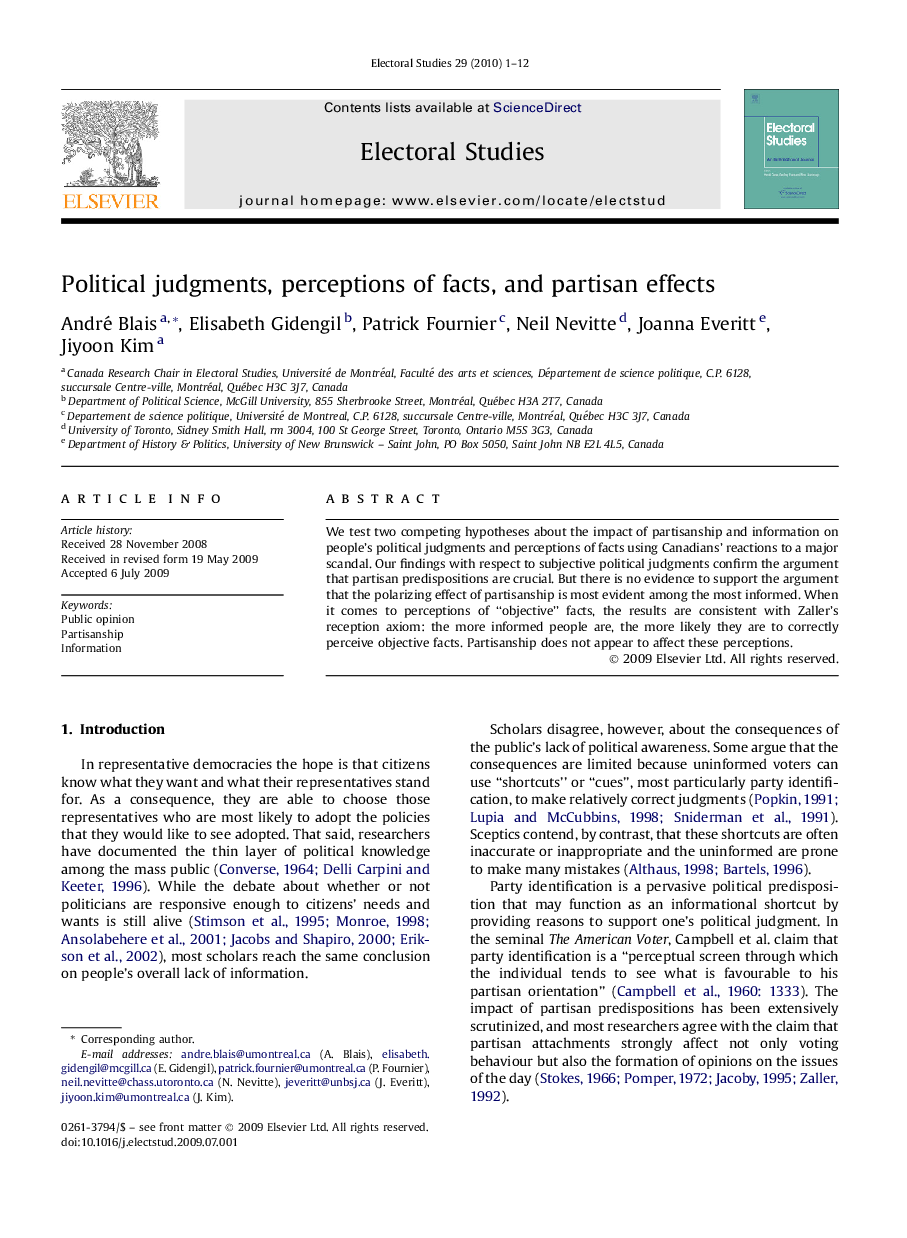| Article ID | Journal | Published Year | Pages | File Type |
|---|---|---|---|---|
| 1051979 | Electoral Studies | 2010 | 12 Pages |
Abstract
We test two competing hypotheses about the impact of partisanship and information on people's political judgments and perceptions of facts using Canadians' reactions to a major scandal. Our findings with respect to subjective political judgments confirm the argument that partisan predispositions are crucial. But there is no evidence to support the argument that the polarizing effect of partisanship is most evident among the most informed. When it comes to perceptions of “objective” facts, the results are consistent with Zaller's reception axiom: the more informed people are, the more likely they are to correctly perceive objective facts. Partisanship does not appear to affect these perceptions.
Related Topics
Social Sciences and Humanities
Social Sciences
Geography, Planning and Development
Authors
André Blais, Elisabeth Gidengil, Patrick Fournier, Neil Nevitte, Joanna Everitt, Jiyoon Kim,
